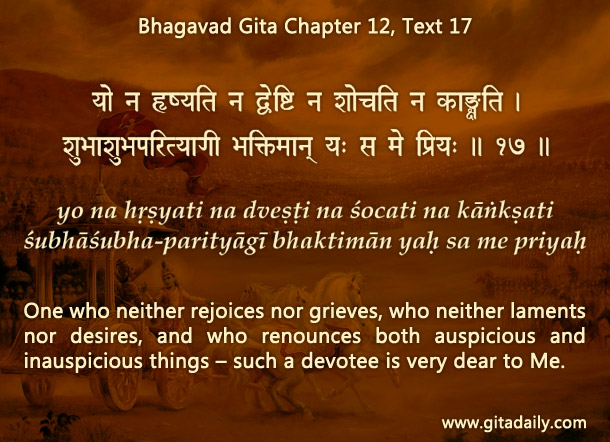
When a mother loves her infant, that maternal emotion takes her beyond all other emotions. For example, she may be exhausted after a day of hard work, yet when her baby cries at night, the maternal emotion takes her beyond that tiredness, inspiring her to wake up and pacify the crying baby. In fact, this maternal emotion appears even before the baby is born – it empowers the expecting mother to tolerate labor pains. Overall, a mother experiences the different emotions like exhaustion and pain, but those other emotions are subsumed by the maternal emotion.
The same principle of a richer and deeper emotion subsuming other emotions applies to spiritual life too. The emotion of devotion for Krishna, when it awakens in our heart, offers such a profound fulfillment that all other emotions become pale in comparison. This doesn’t mean that we as devotees suppress all those emotions or become desensitized to them. Rather, we learn to see those emotions from the perspective of our life’s supreme reality – the eternal reality of our spiritual identity and our eternal relationship with Krishna. And therein lies the distinguishing feature of devotion. Different emotions like maternal love or patriotism may become so strong as to take the experiencer beyond other emotions, but they are connected with temporary things. Only the emotion of devotion springs from eternal reality and so can last eternally.
The Bhagavad-gita points to this devotion-centered perception of all emotions, when it (12.17) commends those transcendentalists who being rich with the emotion of devotion (bhaktimaan) stay undisturbed amidst worldly emotions like jubilation or lamentation. By the steady practice of bhakti-yoga, we learn to first consciously and later subconsciously subsume worldly emotions within the emotion of devotion, thereby going beyond other emotions.
Explanation of article:


Leave A Comment